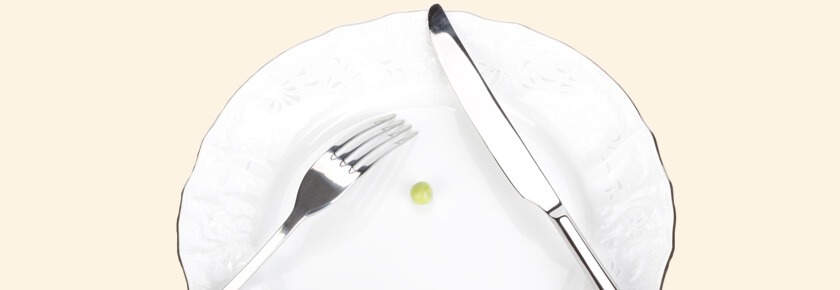Has our obsession with eating clean given rise to a new type of eating disorder?
This article was made possible because of the generous support of DAME members. We urgently need your help to keep publishing. Will you contribute just $5 a month to support our journalism?
It’s hard for Jenn to remember precisely when her health kick mutated into an eating disorder. “Sometime during high school after an injury,” the sunny, Midwest-raised physical therapist recalls, “I started cutting out certain foods until I was eating only fish and vegetables.” But she’ll never forget the time during grad school when it sent her to the hospital. Frail and despondent, she had overdosed on anti-anxiety pills.
Jenn’s diagnosis: anorexia with purging, triggered by a disorder even her parents met with skepticism—orthorexia, or a pathological preoccupation with healthy eating. And these days, it’s dramatically on the rise. “It took me a while to accept. ‘I’m not at my lowest weight. Why should I be going into treatment now?’” says the 27 year old, now living in New York City. Hell, she was even running half-marathons at the time.
“I’ve heard it said that people with eating disorders muster up this energy. Like, we just drive on mental obsession,” she marvels, albeit ruefully. “I know there’s no way that I’d be able to do that now.” She was only human, so ultimately she cracked, by taking a toxic dose of her anti-anxiety pills. “I honestly didn’t realize it was an overdose. I thought I needed that much medication—I was at a level of depression and misery that I had never experienced before.”
Orthorexia nervosa is a relatively new and somewhat controversial term coined roughly 15 years ago by Dr. Steven Bratman, an organic farmer–turned–physician. Though orthorexia is not classified by the American Psychiatric Association, medical professionals are increasingly convinced that it can be a gateway to a more catastrophic illness.
“We see a lot of orthorexia in our anorexia patients,” says Sondra Kronberg, a clinical nutrition therapist and previous board member at the National Eating Disorders Association. (Where orthorexia is characterized by an intense attempt at healthiness, anorexia is defined by control, body-image, and weight-loss issues.) “One of the causes of anorexia may be OCD or anxiety,” Kronberg continues. “What happens with orthorexia is that the OCD or anxiety manifests itself through rigidity with the food.”
That’s what escalated Jenn’s breakdown. “My friends and I would go out for dinner, and I’d just have anxiety attacks,” she says. “Having to decide between all these items—I had no control over what was going into the food. Even if I just ordered salad, I didn’t know exactly what was going into the dressing. I’d have to ask for lettuce with carrots on it.”
Social interaction became a catch-22. When Jenn was alone, she’d fall into a pit of despair. She wanted to be around people—but when she was, she’d just push them away. She wouldn’t even let herself have romantic crushes, “because I was so focused on myself. My body image was so awful, I didn’t want anyone to be around me that way.”
Jenn is merely one individual in what Juliet Zuercher, a faculty member and registered dietitian at Timberline Knolls Residential Treatment Center (an Illinois-based treatment facility), says is an expanding population of orthorexia sufferers. “I think orthorexia has spiked. [In pop culture] there has been an Oprah effect and an Angelina effect. And this is the Gwyneth effect, the clean-eating trend,” Zuercher says. “It is definitely influencing this movement of people thinking that healthful eating has to go to this extreme. People in our culture convolute the ideas of health and beauty. They are two entirely separate conversations—we get off track when we equate thinness with health.”
As eating-disorder diagnoses become more nuanced, so does treatment. “Someone with anorexia is terrified of gaining weight. Body image and the exercise abuse are not typical in orthorexia,” says Zuercher. “In fact, with orthorexics, you’d come at it from the other angle: ‘Have you ever considered restoring, gaining weight? Have you considered exercising for pleasure, not as a means of calorie-burning or weight manipulation?’ Because their motive is different, if intervention comes early, they do tend to respond better.”
Much of the skepticism around orthorexia stems from its absence from the American Psychiatric Association’s lexicon as well as the lack of research into it. “By the time it gets really bad and a patient needs a professional to intervene, it looks like anorexia. Insurance companies wouldn’t lobby for that, because it wouldn’t change their reimbursements,” explains Zuercher. She’s observed, unscientifically, that orthorexia tends to afflict affluent, educated white women, aged 30-plus—“liberal-leaning with a social-justice mentality and with environmental concerns.”
“We’re such an infancy field with very little funding for research, because there’s very little research [into eating disorders, in general]. The bulk of money is going to genetics,” says Kronberg. And that’s not necessarily a setback. “We’re in the era of gene-scanning and -mapping. There’s chronic information in the media about how to be fit or healthy, and we know, more and more, that not everyone develops an eating disorder under the same environment or circumstances. People can be genetically predisposed to developing an eating disorder.”
Still, Jenn is convinced that clean-eating extremes in the media is spreading a dangerous gospel. “I could go on a rant about how a lot of the ideas I got were definitely from culture and TV,” she says. Three years after her OD and in-patient treatment, Jenn is proud to report that she eats carbs all the time and is back to fighting weight. “Oh, it’s not all rainbows and sunshine,” she says. “There have definitely been some trying times. I think the most important thing is that I keep moving forward.” These days, Jenn has a new obsession: everything in moderation.
